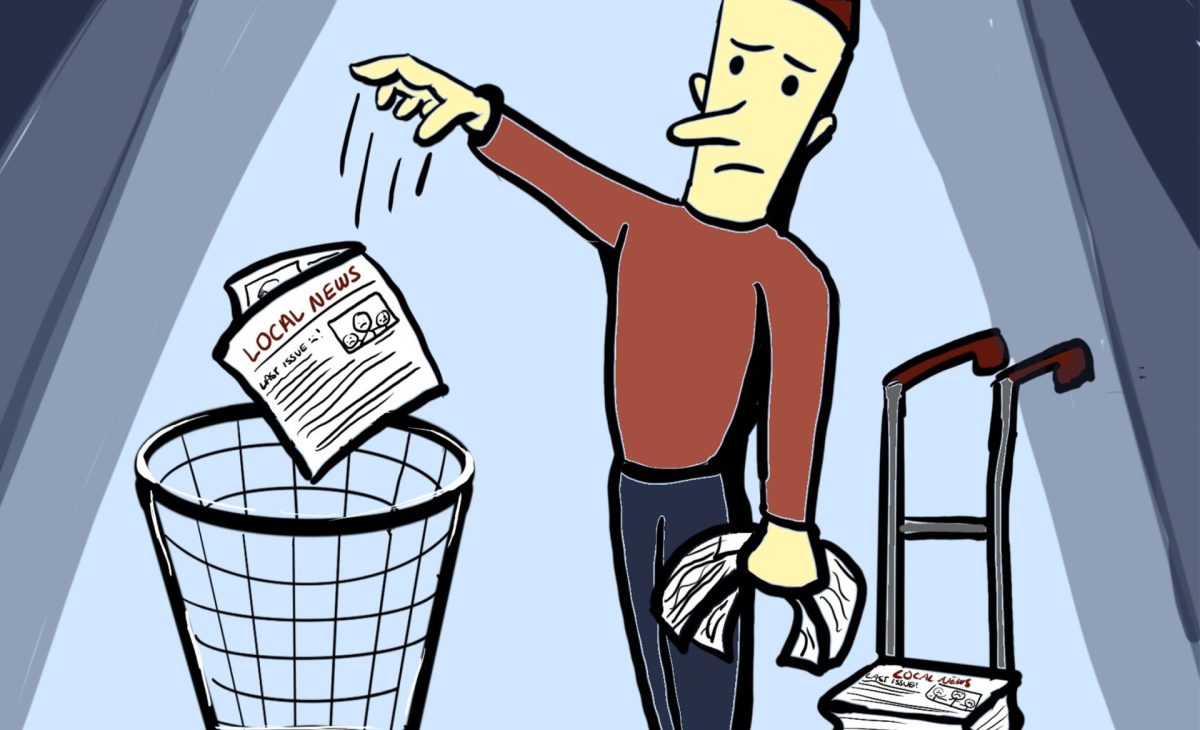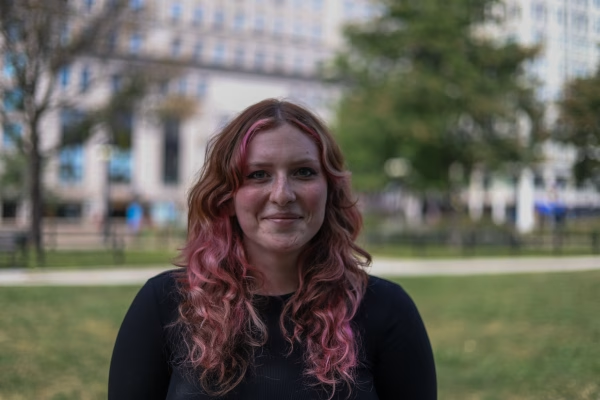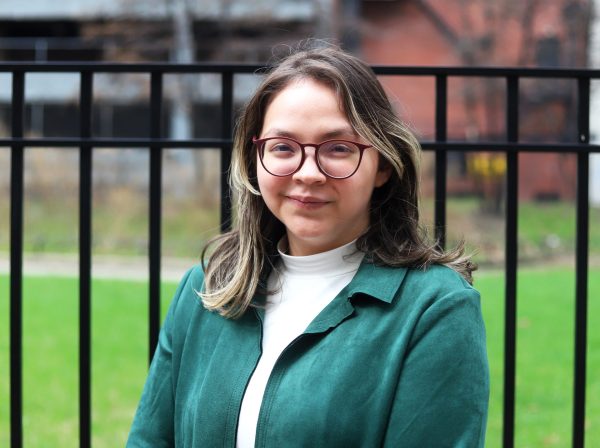The Chicago Reader, operating as a board-governed, unionized nonprofit, provides free news coverage for the Chicagoland community. Founded in October of 1971, the Chicago Reader’s focus has always been the news, arts and culture of everyday life.
In the early days, the founders took no salary. They worked odd jobs delivering plants, installing waterbeds, designing ads and dispatching for paper services. Together they spent late nights assembling layouts on apartment dining room tables.
The publisher of the Chicago Reader, The Reader Institute for Community Journalism, announced, “the immediate layoffs of six non-union employee staff positions, spurred by an urgent need to reduce costs in order to avoid organizational closure” in a January press release.
Revenue and expenditures did not align and immediate action was taken to course correct, Ellen Kaulig, Chicago Reader chief of staff, said. Some members of the editorial staff have voluntarily taken furlough days as well as pay cuts to ensure survival.
“We’re working towards a more sustainable future for everyone,” Kaulig said. “We see each other as a team and we really do enjoy each other.”
Karen Hawkins, current story editor at The 19th, worked for the Chicago Reader for three and a half years — up until May 2022. She began as digital managing editor, then managing editor and by the time she moved on, Hawkins was acting editor-in-chief and co-publisher for the Chicago Reader.
During Hawkins’ time with the Chicago Reader, she saw the publication shift from weekly to biweekly printing during the Covid-19 pandemic. In the following years, she watched as the Chicago Reader transitioned back to weekly.
“They seemed to be strengthening themselves,” Hawkins said. “I saw the fundraising campaigns and I saw them hiring a ton of infrastructure. I was surprised to see that they needed to make those adjustments.”
Hawkins’ was also with the Chicago Reader when they transitioned to a nonprofit organization in May 2022.
“The booms and busts of the industry and funding the industry is one reason that we took the Reader nonprofit,” Hawkins said. “I really do feel like that is the future of media. Opening up those funding models is one path, not the path, but one path to long-term sustainability for media.”
The Chicago Reader, according to Editor-in-Chief Salem Collo-Julin, has never been a right-centered publication — there has always been a progressive bend. Collo-Julin said that the staff often asks: “What are the Chicago stories that we need to be telling? Who are the people in Chicago that are getting things done that we don’t always see in the daily news?”
“There’s always been a connection to the personnel in Chicago,” Collo-Julin said. “It’s not about our ability to report that gets threatened. It’s about the people that we have been reporting on for the entirety of our existence.”
Any time there is an electoral change at any level of government, Kaulig said, there is an immediate contraction within nonprofits. She said for nonprofits, there will always be fear and trepidation along with any change in leadership — especially when government is moving so quickly.
“If the judicial system is having a hard time keeping up with all of the changes, a nonprofit such as ours is also hard-pressed when it comes to politics,” Kaulig said.
In addition to great accountability reporting, newsrooms must continue to have community focus and begin conversations with audiences, Hawkins said.
“I hope that we continue to be in community with people to be thoughtful about assessing what needs the community has,” Hawkins said. “How do we provide a holistic look at Chicago?”
Sharing similar sentiments with Hawkins, the localized coverage that the Chicago Reader provides drew Kaulig to this organization. She said it is what keeps her pushing the long days and nights.
“The Reader is often one of the first supporters that people get — it’s the first positive review,” Kaulig said. “The work that the Reader does, it shines a light on people who otherwise would not get any attention. We’re the first place to say: ‘You matter. Your work matters. What you’re doing is important.’”
Mike Puente, board president for the Chicago Headline Club and WBEZ reporter, agreed that local coverage is essential.
“You need to know what’s happening in your own backyard,” Puente said. “The major cable outlets, they’re not going to cover your community. They’re not going to cover your school board, town council or property tax rates. It’s vital for an area to have local coverage.”
To further financial security and avoid relapse, the Chicago Reader is actively working to create an emergency reserve of funds, Kaulig said. The organization created a six-week donation target that was surpassed in under three weeks.
Additionally, the Chicago Reader searches for sustainable ways to find its footing and continue reporting for the Chicagoland community.
“We would not be here without Chicagoans and past Chicagoans saying the Reader matters,” Kaulig said. “It’s been heartwarming.”
Editor’s note: This story has been updated to reflect the correct job title of The Chicago Reader’s publisher.
Related Stories:
Support Student Journalism!
The DePaulia is DePaul University’s award-winning, editorially independent student newspaper. Since 1923, student journalists have produced high-quality, on-the-ground reporting that informs our campus and city.
We rely on reader support to keep doing what we do. Donations are tax deductible through DePaul's giving page.




